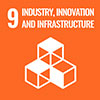Innovate, transform and transfer
The development of electronics, telecommunications, and computing during the 20th century is one of the fastest and most transformative revolutions in human history. Compared to the successive revolutions in society’s progress since prehistoric history, it creates a new paradigm of progress that continues to be difficult to assimilate. The times between scientific findings, their realization in products or services, and their understanding by society, are becoming shorter and more demanding. Understanding how innovation, not only technological but also global, translates into a real transformation of society, its processes and how people approach it, requires the coordination of all social actors to achieve equitable and sustainable economic and social progress.
This article contextualizes and explores the keys to the relationship between innovation – understood as a complex process –, transformation – which is now digital –, and the transfer of knowledge necessary for the former to really become a transformative element of society.
ODS



 Eduard Martín Lineros
Eduard Martín LinerosIT Engineer from the UOC and IESE Innovation Management Certified. He is currently a CIO of the Barcelona Mobile World Capital Foundation, and a collaborating professor at the UOC and the UPC. He has more than 30 years of experience managing and directing work teams in the technology field. As director of Innovation, Society of Knowledge and ICT Architectures of the City Council of Barcelona, he contributed to Barcelona being chosen as the first European Capital of Innovation (2014-2016). He was also director of Smart Cities and public sector strategy in Spain at the international consultancy Sopra Steria.



